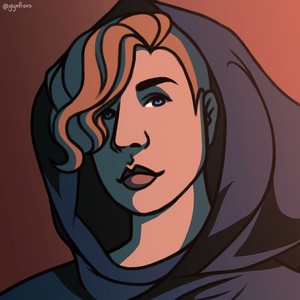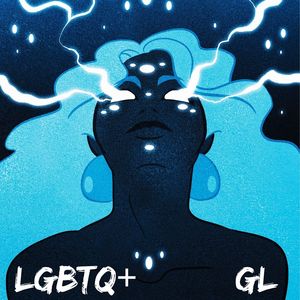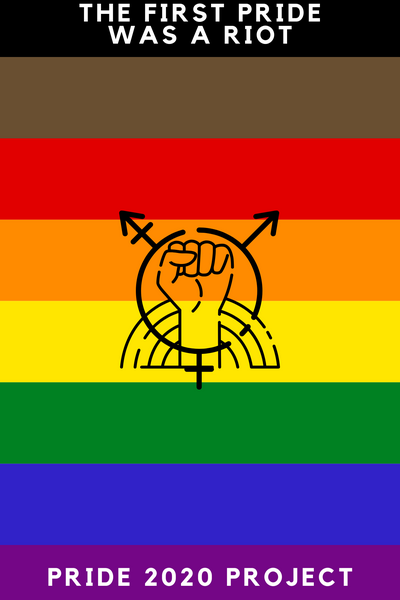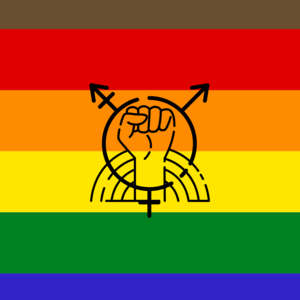Content Warnings: Discussion of queerphobia and racism.
Milo Nelakho is a queer African fantasy writer whose works tell tales of witches and magic. His work Nomvula won a Watty Award in 2019, and his current work, Earthwitch, has been widely commended. Milo lives in South Africa.
Hi Milo! How’s your day been so far?
It’s been… stressful? I don’t know, lockdown seems to stretch and squeeze time throughout the day, and being online with all the discourse around being a QPOC creator definitely takes energy at times. Naturally, there were good memes throughout the day to keep me sane.
You’re a fan of N.K. Jemisin. Are you excited for her new book?
After reading about it, I can’t help but be. The story itself sounds immersive as hell. N.K. Jemisin’s worldbuilding is always layered and textured, and knowing that she’s bringing that craft to a setting she knows so intimately is exciting to consider. I also enjoy that, as a writer – a creator – she’s chosen to stray a little from the path people put her on after releasing The Broken Earth trilogy. ‘The City We Became’ promises to be a fun monstrous fantasy, and it’s always great when authors are given the space to explore the range of their stories.
As LGBTQ and POC creators, there are a finite number of stories we can tell about ourselves that gatekeepers accept. As a result, the perception mainstream audiences have of us isn’t how we see ourselves, it’s how gatekeepers see us, biases and all. A Black author as lauded and visible as N.K. Jemisin expressing that range in this novel is a great lift.
What is about her works that gets you excited?
It’s the honestly of it. That’s a little harder to quantify, but it’s the same feeling I get reading Toni Morrison or Zakes Mda or Mohale Mashigo. There’s a sense that you are reading words from someone who didn’t compromise the vibrancy of their creative mind or the honesty and clarity of their worldview. It’s humbling to read. Of course, N.K. Jemisin is also a master of the craft who knows how to soak a story into every line of prose and dialogue.
When I see her characters, her black characters, I see myself and I see people I know and grew up with – but I also see the people we could be, we say we are, we despise, we worry for and love to be around. Jemisin also writes some of the most outstanding relationship dynamics in the genre.
That’s a writer who gets me excited to write more, read more, develop more of my interests more deeply. That kind of storytelling awakens the keen adventurer I think we all need to truly make the most of our craft.
Your newest work is based on Greek mythology, even though most of your works are based more around African culture. Can you explain a little bit about why you started writing what you do?
Percy Jackson! I loved the balance of these grand myths seen through the lens of someone my age. At some point I figured the stories could use a black kid who loved archery. Turns out, that was my first ever fan-fiction. It was terrible, I loved it.
I’m currently re-uploading the first original fiction story I wrote, inspired by that fanfic. 200k words written over 18 months. A lot of that time was spent around characters and concepts I’d develop in every book between then and now. Between that story and Earthwitch, I’ve paid more attention to the rich histories and myths of my own cultures and the environment around me. I still love the examination of humanity through near-divine beings on earth, epic monster battles, and the fatal flaws at the heart of so many heroic stories. That’s the Greek fantasy side I carried over, but there is something… I want to say clearer about writing things you’ve touched and smelled and seen your whole life. It’s a special feeling.
For some people, Nelson Mandela, Trevor Noah or Black Panther may be their only exposure to South African culture. What are the little things about South African culture that you love? Are there any things unique to LGBTQ culture in South Africa?
South Africa’s culture is full of wisdom and humour at its best. I think LGBTQ people here still learning to emerge in a society that has moralised against them, from within our cultures, our families, society, school, colleagues. Hiding a part of yourself to move through society still doesn’t protect against the blow of hate speech towards and actions against your community. As a result I think those South African LGBTQ people who’ve found safe spaces to be themselves are so protective of those spaces and such strong advocates for those coming in after them.
The solidarity I’ve experienced certainly isn’t unique, but that blend of unquestioning support and resolute activism is something I’ve been fortunate to learn and carry into other spaces. Culturally, I think what Mandela, Trevor, and T’Challa definitely capture is the resilience of humour. Trevor is… well, he’s a comedian but people forget how humour and personality were baked into Nelson Mandela’s most influential moments, or how the tone in Black Panther was carefully managed to show a range of emotion and being throughout the cast.
Earthwitch is an incredible fantasy novel. Can you tell us more about it?
Earthwitch is a story about Anele, a rogue witch with a shattered soul, hunting a mad god whose spirit could heal hers if she ate it. She has to compete for it with a soul surgeon and a seer. At some point the planet talks? It’s… a lot.
The whole thing takes place in a single setting, a desert town. This was partly inspired by my fascination with the structure of westerns and closed room mysteries, and how they could build so much tension around a single location. Alchemy, elemental magic and witchcraft sort of came together and made an Earthwitch.
Earthwitch stands out so powerfully partly because of its non-binary representation with the character of Wenyanga. Queer themes and characters run through all your works though. How has your identity as a queer writer shaped the types of tales you tell?
How I write relationships has shifted with my understanding of my own queerness and the world around me. There are ways we’re taught to think about gender and sexuality that affect almost all of our relationships and interactions with people. A lot of them are limited in scope. LGBTQ relationships fall outside of these structures because we don’t grow up having them enforced on us , so there’s more space to self-define what a good relationship means, how community empowers us, how unconditional acceptance can be.
How did this influence the creation of some of the relationships in Earthwitch?
For one thing, the main relationship story is about a polyamorous couple untangling the death of their other partner, and how two characters in a committed relationship keep from untangling rather than fighting to get together. So often we read romance stories where the characters meet, get closer than get together, and there is so much to be explored in that dynamic, but the same is true for pre-existing couples. So many of my queer relationships skipped the formal ‘acquaintance’ step and jumped straight to iron-strong bonds.
A non-binary main character also meant I had to question my own ideas and biases around gender roles. I couldn’t have begun to write Wenyanga without committing to questioning my own perspective and listening to ownvoices creators and readers discuss what good non-binary representation and support meant.
It’s also a story that explores being raised by guardians, and how the person you assign that power of mentorship too can shape your perception of the world. It’s about fighting against that, finding yourself in the world and choosing to build relationships that care for how you exist in the world, not how others think you should.
What issues have arisen from being open about your identity, especially as a ‘black queer writer’?
Tokenism is a big one. The readers who’ve found my work are awesome people, but among other writers and platforms themselves, there’s often the sense that you become the ‘black writer’ or the ‘queer writer friend’ and I’ve felt my identity commoditised often. It’s a two-prong problem. On one hand, peers and platforms only bother to acknowledge you when there’s social capital involved.
So the occasional visibility is extremely conditional, otherwise you spend your time buried in the niches. On the other hand, the optics of these opportunities also lead to harassment from peers and writers thinking we’re somehow… I don’t know, taking readers away from them? It’s like being put on a paper pedestal so people can throw fruit at you.
If you could talk to the industry at large, what would you say?
I really, truly wish they’d support us year-round. When LGBTQ stories are buried for 11 months only to be dumped on the homepage during Pride Month, they just drown each other out. I also think platforms overestimate the idea of only marketing us when there’s a socio-political event, and they underestimate how much queer readers actually want to see themselves in stories throughout the year. Companies and gatekeepers can afford to think in seasons but our existence in the real world and the arts is a daily matter.
I wish they’d foster safer writer communities by encouraging a culture of respect rather than just politeness. I wish they’d put more LGBTQ creators (who have specific interests in improving the on-platform experience for us) in positions to affect decisions. So often, when platforms and websites learn that we have a problem, they often rush to fix it according to what they think we need. We’re rarely consulted and allowed to clarify our needs and see how well they align with these spaces where we’re expected to spend so much time on to succeed.
What things do you wish you’d see more of in works created by and for the LGBTQ community?
I’d like to see more queer representation in adult fantasy works. I’d also love more intersectional black characters in main casts. When we talk about intersectionality, ignorant people think we’re just packing on ‘quirky personality traits’, but identity is a complex thing that shifts according to these intersections, and the visibility of more diverse representations of blackness is needed to push back against the more dangerous tropes we’re often written into.
For a lot of queer writers, they don’t often get asked about their positive experiences of being LGBTQ. What would be your standout best experience as a queer writer?
It’s got to be my circle. I’ve found friends whose empathy, humour, compassion, protectiveness, determination and perspective has helped me so much not just in my journey as a creator but as a person. I learn from my other LGBTQ creators daily, and I live my truth with them in a way I never truly thought I’d ever be free to do. In my country, there are many places that are still unsafe to be openly LGBTQ in.
Online LGBTQ spaces haven’t just been a way to find art and connect with international queer friends, but they’ve helped me connect safely with friends in South Africa and the African continent at large. Finding people who shared a perspective I thought was so damningly unique to me was liberating.
What do you like most about being an LGBTQ creator?
Honestly, the actual art is great, but seeing the opportunities opening up for LGBTQ creators has been wonderful. The campaigns for online safety, the clear and vocal support from platforms, and the creation of communities and affinity groups have seen so many marginalised creators suddenly able to connect and plug each other into new avenues.












Comments (6)
See all